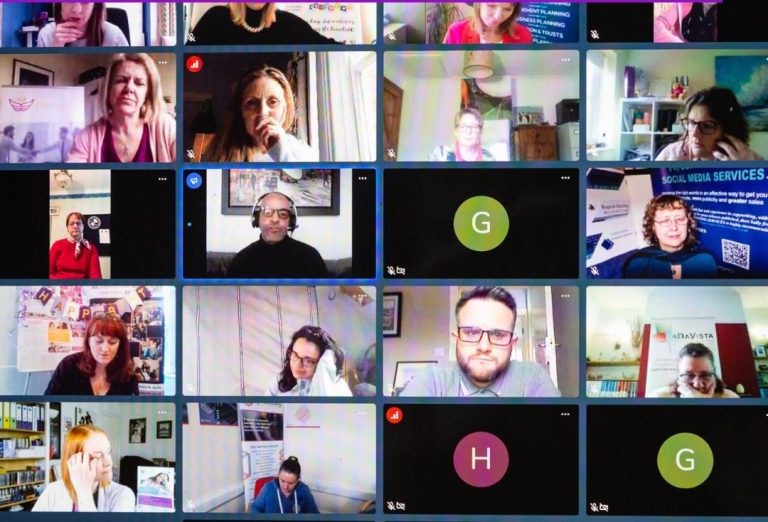Small Business Profits – Could heat pumps be a game changer creating Eco-Friendly Heating and Cooling Solutions?
Louise Howlett from RA Brown Heating Services shares a robust look at the benefits of environmentally considerate heating solutions and how they can benefit small businesses – removing the hype, the falsehoods shared in the news and making a clear path to understanding their benefits. All Insiders can write for our blog. It’s a great way to share your knowledge and advice to other business owners and professionals who could benefit.
Hundreds of years to transition to low carbon heating!
In the middle of lock down a report was published by The Environmental Audit Commission projecting that at the current rate of progress it would take 700 years to transition to low carbon heating.
Now we’re 3 years closer to the 2030 target of reducing carbon emissions down to 40% reduction on 1990 levels.
The part of that target that needs to be met by transitioning to heat pump technology has barely moved forward in the last 3 years.
You may have noticed extremely mixed messaging surrounding heat pumps in the popular press and on-line. As an experienced heat pump installer with 15 years’ experience and many national awards under our belt we want to dispel some of the myths.
Myth 1 – If you change to a heat pump you have to wear a cardigan in the Winter as it won’t heat your home properly.
Truth: Heat pumps are completely capable of heating your house if they have been designed an installed correctly. I can’t tell you the number of Linkedin posts I’ve written arguing against ‘toxic, misinformed, articles this winter, sitting at my PC in my t shirt – heated perfectly by a heat pump!
Myth 2 – Heat pumps are not suitable for older properties.
Truth: – To meet the target to reduce carbon emissions – the retrofit market is extremely important, including older properties currently heated by oil & gas. It is preferable to undertake’ fabric first’ improvements to insulation, windows etc. But let’s be honest that’s just a good idea to save fuel whatever type of heat source you have. Almost every property can have a heat pump – if they have sufficient electricity supply and if the system is properly designed to meet the heat losses.
Myth 3 – Heat pumps are expensive to run.
Truth: The popular press homes in on people who have switched to a heat pump and find that their bills are extremely high. In the past when electricity prices were lower and more stable this could ring an alarm bell for a system that was not sized correctly either too small or large a heat pump or inadequate heat emitters (usually radiators and pipework not upgraded). Nowadays with energy prices fluctuating wildly it’s more difficult to define ‘expensive’. The truth is a properly running system will be 3 or 4 times cheaper to run than direct electric heating, this is because an air source heat pump is 300 – 400% efficient. The Government are set to sort out the fact that gas prices have been kept lower and more green levy has been applied to electricity – which is crazy as the grid gets greener. Also forward thinking Electricity suppliers such as Octopus Energy are coming up with all kinds of heat pump friendly tariffs as they want to sell heat pump systems themselves. Also people misunderstand the fact that heat pump systems are more efficient if they are left to run all the time (they don’t actually ‘run’ all the time) switching on your heating a couple of times a day is not the best way to run a heat pump – the controlling is just different but is backed by physics!
Myth 4 – If I install a heat pump I will need to replace my whole heating system – radiators and pipework – everything
Truth – Now this one has often been true for many retrofits – if you are dealing with a credible MCS registered installer, but it won’t always be the case. There are now even more advanced products available that can work at an adequate (if not optimal) efficiency without upgrading the pipework and radiators. It is important that the system is designed professionally and to be aware that you can make it even more energy efficient over the years by replacing radiators for larger ones. The outlay for a whole new heating system is understandably a barrier for many homeowners both in terms of cost and disruption. If you have old ineffective radiators then upgrading the whole system is absolutely the best advice for your comfort, running cost and energy efficiency.
Myth 5 – Gas and oil boilers will be ‘banned’ over the next few years.
Truth – The Government are in many ways sitting on the fence about the timetable for phasing out oil and gas boilers. Part of this procrastination is that factions connecting with the powerful gas industry is arguing for adding 20% hydrogen into the gas grid to delay natural gas being banned. It’s easy to see where the 700 years transition time comes in with this kind of disagreement between people wanting carbon zero and other interests wanting to hang onto fossil fuels for as long as possible. The situation gives the consumer no clear direction. The best advice is don’t look to scrap a perfectly usable boiler prematurely but if you care about carbon reduction and energy efficiency look to change your boiler to a heat pump when it needs changing. There should be more and more advantages in terms of good electricity tariffs going forward. In the meantime if you have a newish boiler invest in solar PV and battery storage then when you’re ready for a new heat source the heat pump option will be a no brainer and you’ll feel so smug that your running costs are so low!!
Top tips on choosing an installer:
I know speaking with many customers over the years that people feel vulnerable having a technology that they are not familiar with here are my top tips:
- Look at installers that work in your area that are listed on the MCS Register this is important for three reasons, competence, access to the Boiler Upgrade Scheme and Consumer protection if something goes wrong:
Then look at their website and Google Review rating – what are customers saying about them? Are they really local – useful for servicing and maintenance.
- I know I’m biased but I feel customer service can be better from a small company – all the big energy providers are moving into this space: Octopus, British Gas, Eon etc but retrofit installation really is an individual skilled job.
Don’t believe some of the pricing on adverts from the big energy Companies – they are going to try to have a price war – undercutting each other as they are investing in getting heat pump ready with little return to show for it so far! Some prices sound ridiculous and when you look at the small print it’s only covering a heat pump unit for a tiny house with no system upgrades. Don’t believe the Government’s line about bringing heat pump prices down to the price of a gas boiler this is some kind of weird British egoism – heat pumps are being sold across Europe and are not the same price as a gas boiler. They are completely different, more sophisticated bit of kit. Manufacturing heat pumps in the UK and beating prices even of Chinese products is not realistic.
- Don’t leave making plans to switch to a heat pump until your boiler breaks down. Because of the design needed and possible fabric improvements changing to a heat pump is not best undertaken as an emergency purchase. Companies experienced in the field do not expect fast sales conversions we prefer to be used as a feasibility service and to give a guide estimate for consumers to then plan the installation in more like a home improvement project. We are used to working with ‘self builders’ who may not have even built anything yet but understandably want to get their heating system designed in good time.
- Keep calm and normalise your thinking around heat pumps – we can transition much quicker than 700 years if everyone accepts the urgent need to stop using fossil fuels. We do need support and direction from Government and who knows the Government might be a ‘different colour’ within the next two years. But it is my belief that when it comes to carbon reduction we all need to become ‘green’ otherwise what legacy are we leaving for our children and grandchildren?




